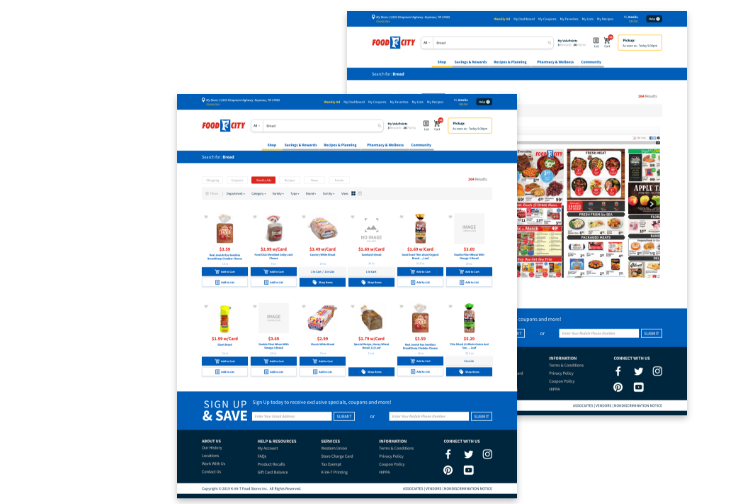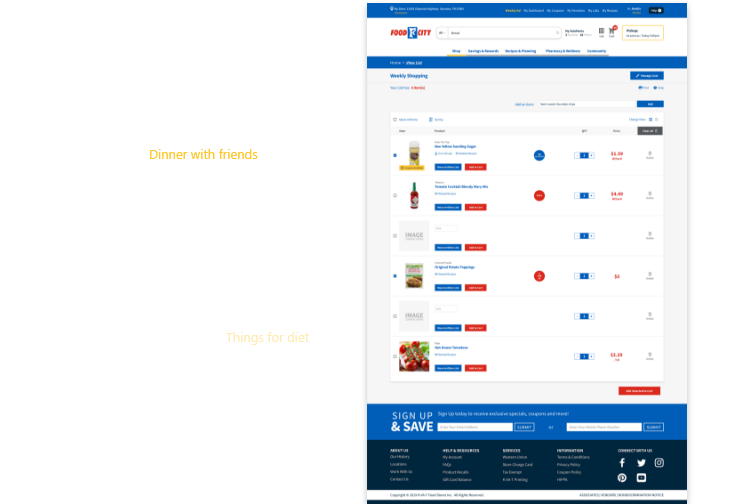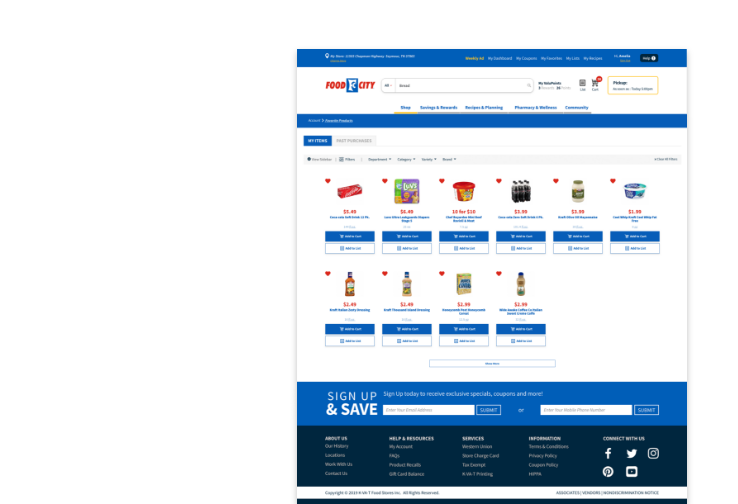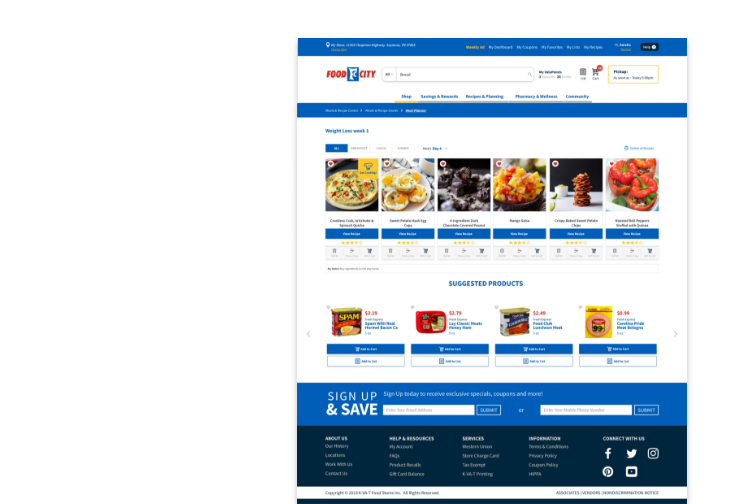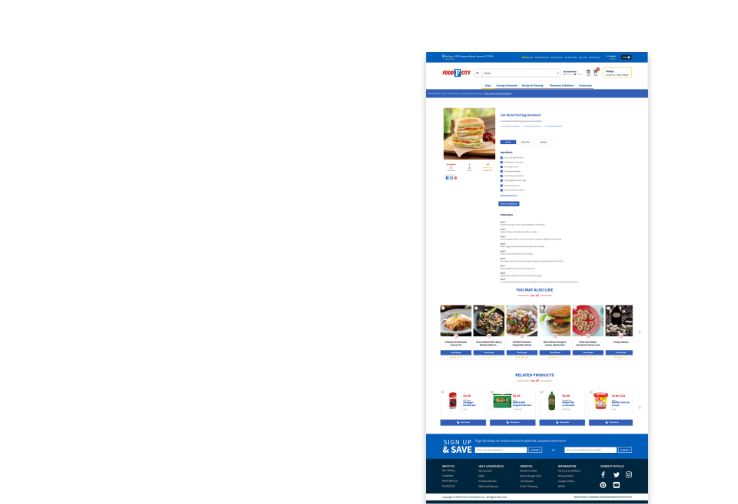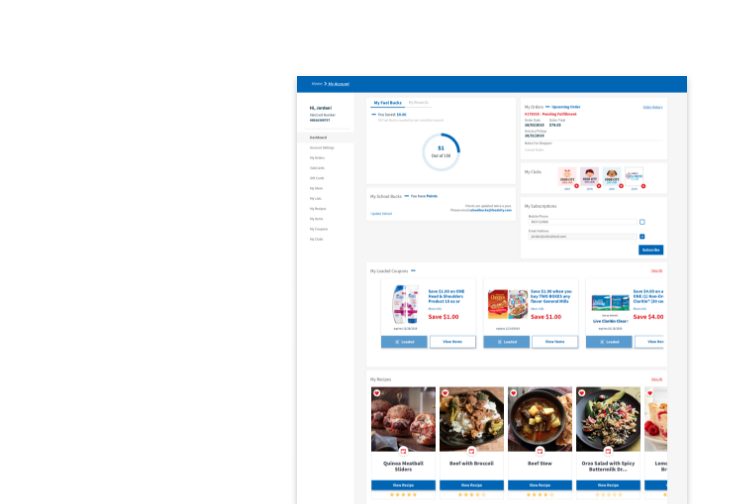
Wellness Club — Scoop on Supplements
Abingdon, VA. -
Saturday, Mar 1, 2025.
Written by: Nicole Pazdziorko, RDN, LDN Food City Corporate Retail Dietitian
Dietary supplements are often used to improve health, enhance performance or fill gaps in nutrition. Most people’s nutritional needs can be met through eating well-balanced meals, however in situations where diet alone cannot meet these needs, dietary supplements may be beneficial. When considering supplements, it’s important to remember that every person is different and nutrient needs vary from person to person. Supplementation should be in consultation with a healthcare provider and complementary to diet. Because there is a synergistic effect to eating foods that have a combination of different nutrients, efforts to improve diet to meet nutrient needs should be made before dietary supplementation.
Nutrient Deficiencies
Some people have chronically low levels of certain nutrients, revealed through blood work evaluated by their physician. Low levels of certain nutrients like vitamin B12, iron and vitamin D are not uncommon. After efforts have been made to increase foods rich in these nutrients and subsequent blood tests revealing low levels, a supplement may be beneficial to restore levels.
Dietary Restrictions
For individuals living with a food allergy, intolerance, or lifestyle diet that restricts one or more food group this can increase risk of nutrient deficiency. For example, eliminating dairy products or fortified non-dairy alternatives can limit intake of calcium and vitamin D, and so a calcium supplement paired with vitamin D to increase absorption may be beneficial.
While fish and seafood – especially fatty cold-water fish – is recommended two days per week as a source of essential omega-3 fatty acids, some people avoid these sources out of preference or allergy. Avoiding fish eliminates major sources of omega-3 fatty acids, so a fish oil supplement can be considered.
Removing wheat, especially whole grain sources, may limit intake of fiber, B vitamins, iron zinc, and magnesium that are found either naturally in grains or through fortification.
Following a vegan diet that eliminates all sources of meat and dairy products may require vitamin B12 supplementation because plant sources of this vitamin are extremely limited.
Life Stage
During different stages of life, our bodies may require more or less of certain nutrients. Some key examples include women during pregnancy. To reduce the risk of some birth defects, it is recommended that women who are pregnant or could become pregnant consume additional folic acid daily, as a supplement to daily dietary intake. Additionally, DHA (an omega-3 fatty acid) promotes brain development in infants and is recommended as a supplement during pregnancy.
As people age, the body has reduced ability to absorb enough vitamin B12 and vitamin D. Choosing food sources to obtain these important nutrients is encouraged, but a supplement may also be needed.
High Levels of Sport and Physical Activity
Elite athletes and individuals with intense training regimens typically require higher overall calorie intake and may specifically require a higher amount of protein to support muscle growth or maintenance. Additionally, electrolytes like sodium, potassium and magnesium may be required in higher amounts to replenish losses that occur through sweating. Balancing meals may be enough to meet athlete needs, but protein and electrolyte supplements can be beneficial.
While supplements can provide benefits for health, it is essential to find options that are safe and effective for you. Visit a Food City pharmacy to find a variety of choices to meet your health goals.

